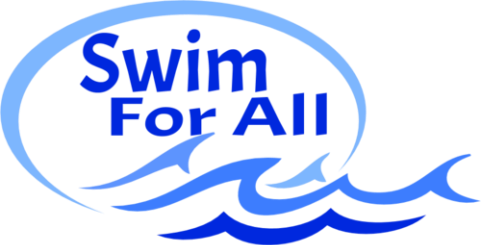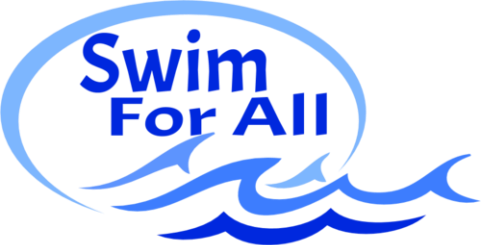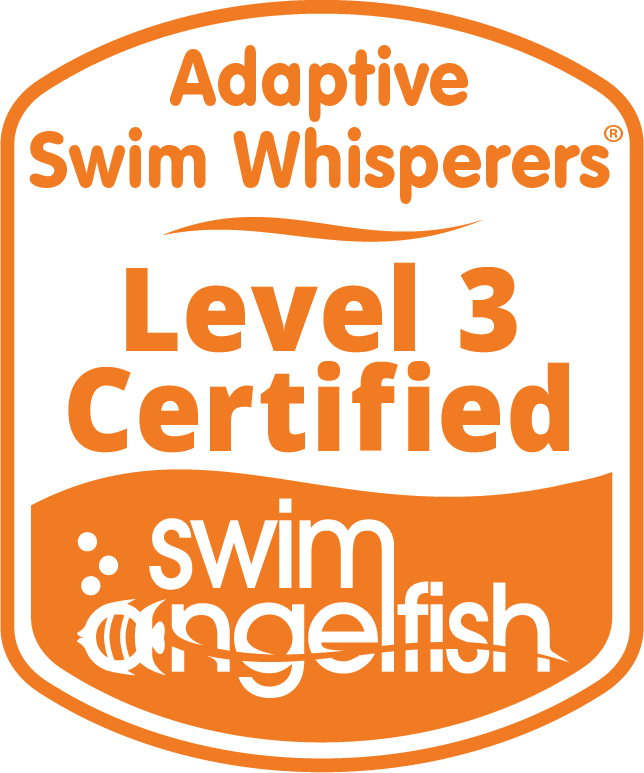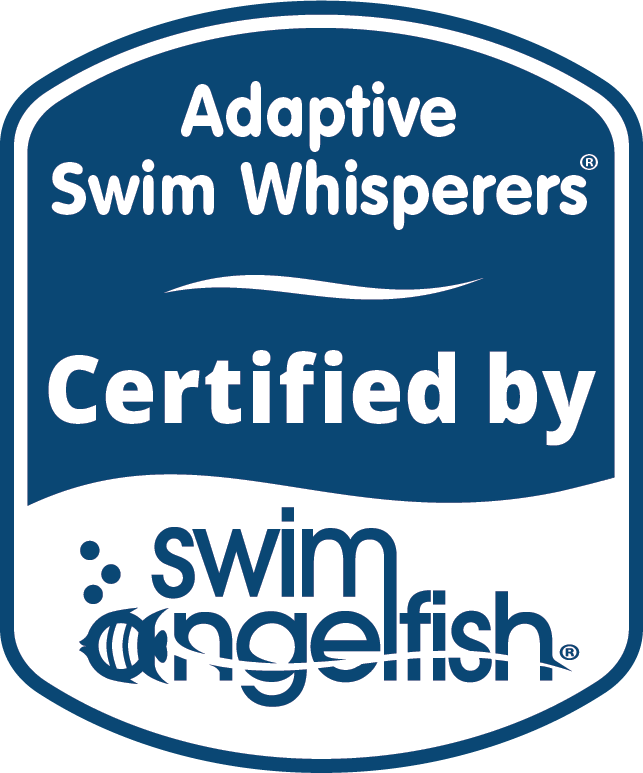|
What to do when your child seems to be stuck at a skill level or even regressing in the water?
This is one of those questions that can have the same answer for all my swimmers at times and then it can also have a vastly different answer at other times for my clients that are not neurotypical. Plateauing in skills in or out of the water is very common for children of all ages. In swimming,a stalled progression could be due to any number of things--physical age, emotional maturity, gross motor skills, fine motor skills, processing memory, executive functioning skills, muscle development, and mood-- just to name a few. Although as a parent these bouts of no progression can be frustrating they typically don't last long. Even more frustrating at times is what appears on the surface to be a regression in skills. A regression in swim skills is very common in younger children (ages 2 to 5) if they do not continue lessons year-round or at least have some fun water time all year long. Typically, after a few refresher lessons they will rebound quickly. A regression of skills for older children or those swimming year-round could be tied to any of the above as well as a growth spurt, anxiety, or even a medication change. Additionally sometimes, especially with my special needs clients, when a new skill is introduced it may present the appearance of a regression in previously mastered skills due to muscle memory and/or processing speed. It is important to just let repeated practice of the older skill along side the new skill to work it's way back into the child's repertoire on the child's own time frame. As I think of regression or no progression in skills and the worry or frustration it can cause us parents, I always hear my mother telling me "this too shall pass". And you know what she is correct.
0 Comments
I have recently been working with several new special needs clients and some of their parents have had comments/questions that left me thinking. After speaking with these parents, I realized that other parents most likely have similar thoughts and would benefit from knowing that they are not alone.
Here are just a few of the thoughts/questions that may run through a parent’s head : Can my child do it? Will my child scream the whole lesson? Will my child make a dash for the door? Will my child throw a huge tantrum getting in the water? Will my child have a full on meltdown transitioning out of the water? Will my child kick, hit, or bite the instructor? Will it be more difficult for my child than a neurotypical child ? And the answer to all of these questions could be YES or NO on any given day with any given child. I know these questions first hand and YES- I have seen these behaviors. In the last couple of years I have been asked many times how I came to place a big focus on teaching children with special needs swimming and water safety. It is because of the Yes to those questions above. As a parent of a child with special needs, I know how anxious a parent can be about swim lessons for the first time, with a new instructor, or at a new pool. Sure every parent wants their child to succeed and every parent worries, but I know firsthand what is like to have to drag your 6 year old child kicking, thrashing, and screaming out of the swim lesson pool because he who didn’t want to get in the water now can’t transition out of the water. I know what is like to have a teen-aged swim instructor reprimand your son for not knowing what to do next or because he just likes to bob continuously up and down in the water. I know what it is like to have a child whose motor planning issues make it very difficult to coordinate arms and legs in a swim stroke. Oh my, the list could go on, but that in a nutshell is why I am passionate about teaching swimming to those with special needs -especially children with sensory issues and/or on the autism spectrum. I want the parents of my special needs clients to know I GET IT because I live it. I can't say I have the answer or secret to get every child to swim, but I can say I won’t give up on your child. I will work with you to make swim lessons as rewarding and as pleasurable as possible for you and your child. The past two weeks I have had the privilege to introduce some brave adults to the world of swimming.
Every time I work with adults I think of how lucky I was to learn to swim at such a young age and to gain a love for the water. As I have been working with new adult swimmers, I have been thinking about how Notre Dame required all freshman to pass a swimming test. If they did not pass they would take swimming as their first PE rotation or for as many rotations until they could pass. Of course this is no longer a requirement, and I think that is a shame. I vividly recall the number of my fellow freshman classmates that were terrified of the water or just couldn't swim across the pool safely. The CDC reports that nearly 70% of all drownings each year are of people 15 years and older . Learning to swim is not just a safety concern for young children, but for people of all ages. Yes, adults should learn to swim for safety, but don't forget for FUN! Just think of all the vacation and family friendly spots that involve water activities--water is the elixer of life. OK--maybe I am a bit of a fish and love the water more than the average person, but you get my point. Swimming is a life-saving skill that just so happens to be lots of FUN too. So what are swim lessons like for adults? Teaching adults to swim for the first time is very similar to children yet at the same time vastly different. Adults who don't know how to swim come to their first lesson with a lot more history and possibly anxiety than the typical child. Some adults may miss out on learning to swim if they come from a culture where swimming isn't widely popular, or they grow up in areas without easy pool access, and other adults are simply afraid—be it from a terrifying water incident early in life or a fear that was fostered by their caregivers. So where does one begin? All swim lessons should start at the individual's comfort level and progress from there with the first focus being on breath control. I am always just as excited to see my adult swimmers hold their breath under water correctly and safely for the first time as I am for any of my younger swimmers. And that's where it all begins.... And what about my new adult beginners? Well, my brave new adult swimmers have learned proper breath control and are working towards kicking ten yards independently --all in 2 lessons. I am so proud of their strong efforts and facing their fear of the water. I encourage all adults and especially parents who don't know how to swim to be brave enough to come take the plunge with me! Reposting my article from Labor Day weekend in case you missed it.
The Benefits of Swimming Year-Round Even though summer is drawing to a close and school has started, it’s still important to practice swim safety year round. Children benefit from year-round swimming for a multitude of reasons. Here are just some of the ways year-round swim lessons can benefit your child: 1. Development of the whole child Not only does swimming benefit children physically, but it also improves their development intellectually and emotionally. According to scientific studies at the German Sports College Cologne, kids who swim year-round fared better academically, particularly in problem-solving skills. The swimmers also displayed more self-discipline and had more self-esteem, which made them more comfortable in social situations. That’s something to celebrate! 2. Improved Development of Motor Skills Studies conducted at the Norwegian University of Science and Technology by Dr. Hermundur Sigmundsson and his colleagues concluded that the youngest swimmers showcased better balance and grasping techniques. 3. Enhanced brain development Kids learn a lot through touch and the texture of different objects — which is known as tactile sensory development. Research by Dr. Ruth Rice determined that babies make “significant gains in neurological development, weight gain and mental development” from the tactile stimulation of the nerve pathways of the skin — and swimming in water (which has over 600 times the resistance of air) certainly covers that. 4. Advanced cognitive development A four-year Early Years Swimming Research Project (with 45 swim schools in Australia, New Zealand and the United States) found that children younger than five who had swim lessons were more advanced in their cognitive and physical development. Plus, researchers in Melbourne found that kids in the study had higher IQs. 5. Increased memory and learning potential It turns out that exercise helps a person’s memory, which helps a child’s learning potential — all because exercise increases the neurons in our hippocampus (an area of the brain associated with memory). Art Kramer, with the help of his colleagues at the University of Illinois and the University of Pittsburgh, discovered that people who were more fit had a bigger hippocampus than those who weren’t as fit. 6. Stronger social skills Swimming helps teach kids how to take turns, listen, share and cooperate. And Dr. Liselott Diem and her colleagues found that kids who had taken swim lessons from two months old to 4 years old could adapt to new social situations more easily because they had more confidence in social settings. 7. Reduced risk of drowning It’s a scary fact, but the Centers for Disease Control states that children aged 1-4 have the highest drowning.However, having your child participate in swimming lessons can reduce the risk of drowning by 88% for neuro-typical kids in the age range of 1-4. That’s according to a study by Ruth Brenner and her colleagues, from the Archives of Pediatrics and Adolescent Medicine 2009. An even more startling fact is that drowning is the number one cause of accidental death in children with autism. According to the National Autism Association, accidental drowning accounted for approximately 90 percent of total U.S. deaths reported in children with autism ages 14 and younger subsequent to wandering/elopement in 2009 to 2011. It is highly advised by professionals to start swim lessons for water safety purposes for all children on the autism spectrum. 8. Skill Maintenance It is important to remember swimming skills, just like skills needed for any other activity, can be lost over time. If a child goes the entire school year without swimming, they lose many of the skills they may have had the summer prior which can actually be quite discouraging. By enrolling your child in year-round swim lessons, you ensure that their skills continually improve and don’t need to be relearned each summer. |
AuthorCoach Amy is passionate about swimming and sharing her love for the water with all abilities and all ages. Archives
October 2018
Categories |
Hours
|
Telephone512-417-7387
|
|

 RSS Feed
RSS Feed



